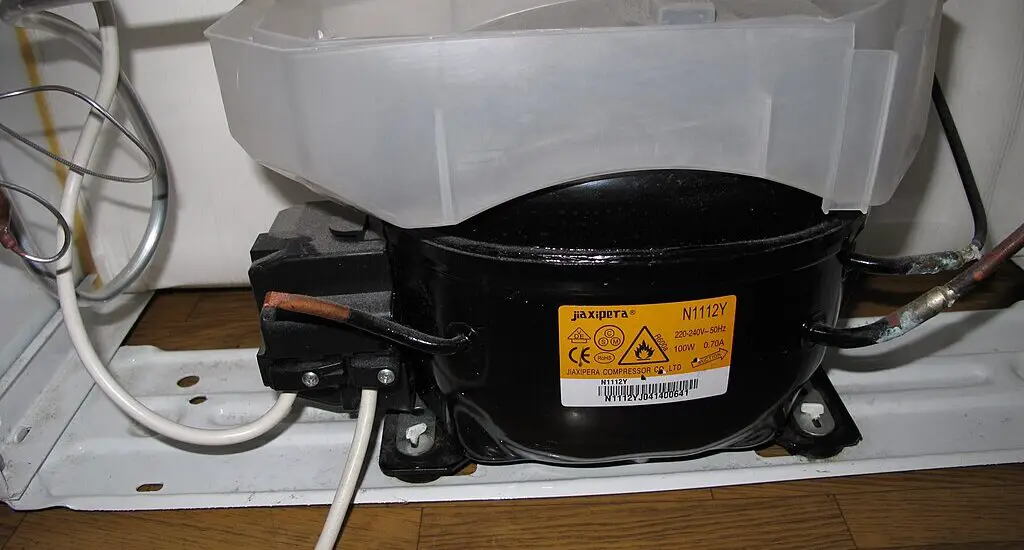Do refrigerators have two compressors? This article provides a detailed breakdown of refrigerator compressor configurations, explaining why some models may have two and the implications of such designs.

Table of Contents
Do Refrigerators Have Two Compressors?
In the world of refrigeration, compressors act as the driving force, pumping the refrigerant, and facilitating the cooling process. Traditional refrigerators typically have a single compressor that manages the cooling for the entire unit, both the refrigerator and the freezer sections.
However, with advancements in technology and design, some modern refrigerators are now equipped with two compressors. These dual-compressor setups, though not ubiquitous, are becoming more prevalent, especially in high-end residential and commercial refrigerator models. In these designs, each compressor is dedicated to a specific compartment, allowing for independent cooling systems for the freezer and the refrigerator sections.
Why Would a Refrigerator Have Two Compressors?
The choice to use two compressors isn’t arbitrary; it addresses specific needs and offers distinct advantages. Here’s why a refrigerator might be designed with dual compressors:
Individualized Temperature Control: Refrigerators with two compressors provide a more distinct separation of cooling systems. This means that each compartment can maintain its ideal temperature without influencing the other, allowing for better preservation of food.
Energy Efficiency: Surprisingly, having two compressors can be more energy-efficient in certain scenarios. For instance, if you’re frequently accessing the refrigerator section but rarely opening the freezer, only the refrigerator compressor will work hard, while the other remains relatively inactive, conserving energy.
Preventing Odor Transfer: Anyone who has stored strong-smelling foods knows odors can transfer. With dual compressors and separate cooling circuits, the chances of odor crossover between compartments are greatly reduced.
Quick Cooling: Dual compressors can provide faster cooling and better humidity control. This is particularly beneficial when you’ve just stocked your fridge with groceries and need rapid cooling to keep foods fresh.
Drawbacks of Dual Compressors
While the advantages are clear, dual compressors also come with certain downsides:
Higher Initial Cost: More technology and enhanced features equate to a higher price tag. Refrigerators with dual compressors are generally more expensive than their single-compressor counterparts.
Potential for Increased Repairs: With two compressors, there’s double the chance of a compressor-related malfunction. If one fails, you’ll need a repair, and maintaining two can be costlier over the refrigerator’s lifespan.
Energy Consumption Concerns: If not utilized efficiently, two compressors might sometimes consume more energy than a well-optimized single compressor unit.
Check out these other articles…
Everchill RV Refrigerator Compressor Not Working: How to Fix
Norcold RV Refrigerator Compressor Not Turning On: Easy Fix
Refrigerator Compressor Runs for 5 Seconds: Quick Solutions
Refrigerator Compressor Upside Down: 5 Easy Steps to Fix It
Which Type of Compressor is Best for Refrigerator? Revealed
Refrigerator Compressor Vacuum Pressure: Comprehensive Guide
Making the Choice: Single vs. Dual Compressors
The choice between single and dual compressors is more than just a matter of counting components. It’s about understanding your specific needs, the benefits, and the potential drawbacks. When deciding:
Assess Your Usage Patterns: How often do you access each compartment? If you’re frequently using both the freezer and refrigerator, a dual compressor might offer better efficiency.
Consider Your Budget: If you’re on a tight budget, the added cost of a dual-compressor refrigerator might not be justifiable.
Evaluate Long-term Costs: Factor in potential energy savings against possible increased maintenance costs to get a clearer picture of the long-term expenses.
Think About Food Preservation: If optimal food preservation, with precise temperature and humidity control, is a priority, dual compressors might be the right choice.